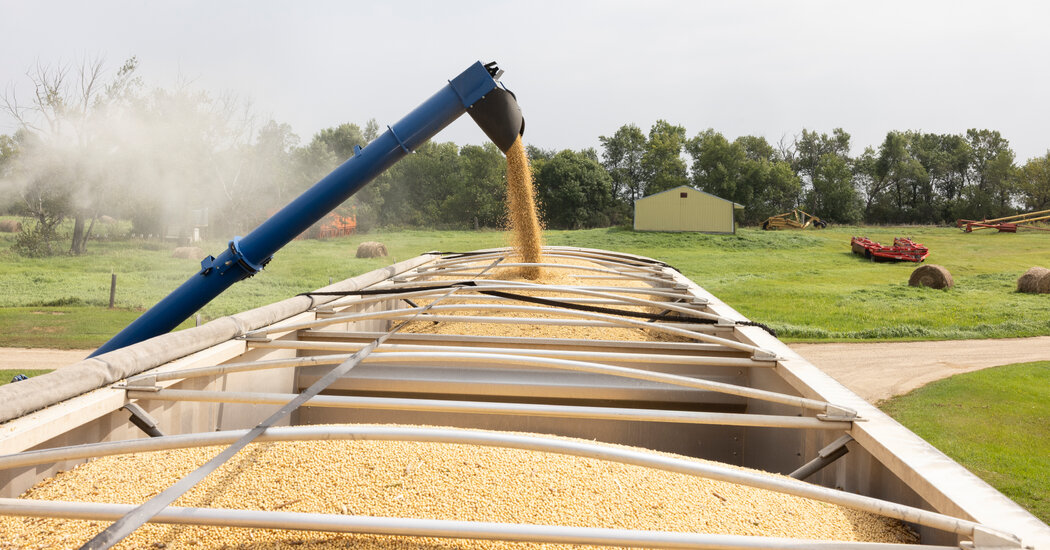The trade truce struck on Thursday between the United States and China gave American soybean farmers a lifeline they desperately needed after months of worry that an extended Chinese boycott would put them out of business.
President Trump said on social media that President Xi Jinping of China had authorized his country to begin purchasing “massive amounts” of soybeans, sorghum and other farm products.
“Our farmers will be very happy!” Mr. Trump said.
The final terms of the agreement have not been revealed, but it appears that China’s purchases of farm products will revert to what it imported before Mr. Trump retook office and initiated a new trade war. Treasury Secretary Scott Bessent said on the Fox Business Network that China agreed to purchase 12 million metric tons of soybeans from the United States this year, between now and January, and at least 25 million metric tons in each of the next three years.
The 25 million metric tons that Mr. Bessent said that China agreed to buy annually over the next three years was in line with the 25 to 30 metric tons that it had purchased in recent years.
Since soybean prices fluctuate, it is not clear how much China will spend on its purchases in the future.
Mr. Bessent, who owns thousands of acres of soybean farmland in North Dakota, said that he expected that Mr. Trump would continue to push China to make additional purchases.
Soybeans are the largest American export to China by value. Last year China purchased $12.6 billion worth of soybeans, but after Mr. Trump imposed high tariffs on Chinese imports China shifted its soybean purchases to Brazil.
The loss of China as a buyer of soybeans and other American farm products raised fears in rural America that a 1980s-style farm crisis was looming and that many farms could go bankrupt. The Trump administration was preparing to provide federal aid to farmers to help them survive the harvest season this year, but said that those plans were stalled because of the protracted federal government shutdown.
“It’s going to provide relief,” said Bill Wilson, a professor of agribusiness and applied economics at North Dakota State University. “And its going to provide relief politically that the Trump administration is trying to be responsive to the farmers.”
Mr. Wilson noted that there were many unanswered questions about the announcement, including how it will be enforced. The trade deal that Mr. Trump reached with China in 2020 also included commitments to make large purchases of U.S. farm goods.
The Covid-19 pandemic disrupted global supply chains in 2020 and, according to the Peterson Institute for International Economics, China bought only about 83 percent of the U.S. farm products that it had committed to purchasing through 2021.
The trade deal between the United States and China was billed as a one-year cease-fire, so it is also not clear whether the farm purchase commitments will need to be renegotiated.
Mr. Bessent said that other countries in Southeast Asia had also agreed to buy an additional 19 million metric tons of American soybeans. He did not specify over what time frame those purchases would occur, but said that overall Mr. Trump had delivered for the farmers.
“Our great soybean farmers who the Chinese used as political pawns, that’s off the table and they should prosper in the years go come,” Mr. Bessent said.
Alan Rappeport is an economic policy reporter for The Times, based in Washington. He covers the Treasury Department and writes about taxes, trade and fiscal matters.
The post Soybean Farmers Find Relief in U.S. Trade Truce With China appeared first on New York Times.




